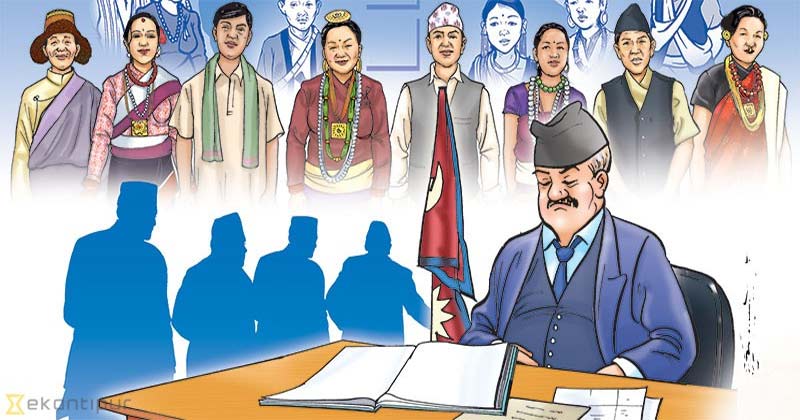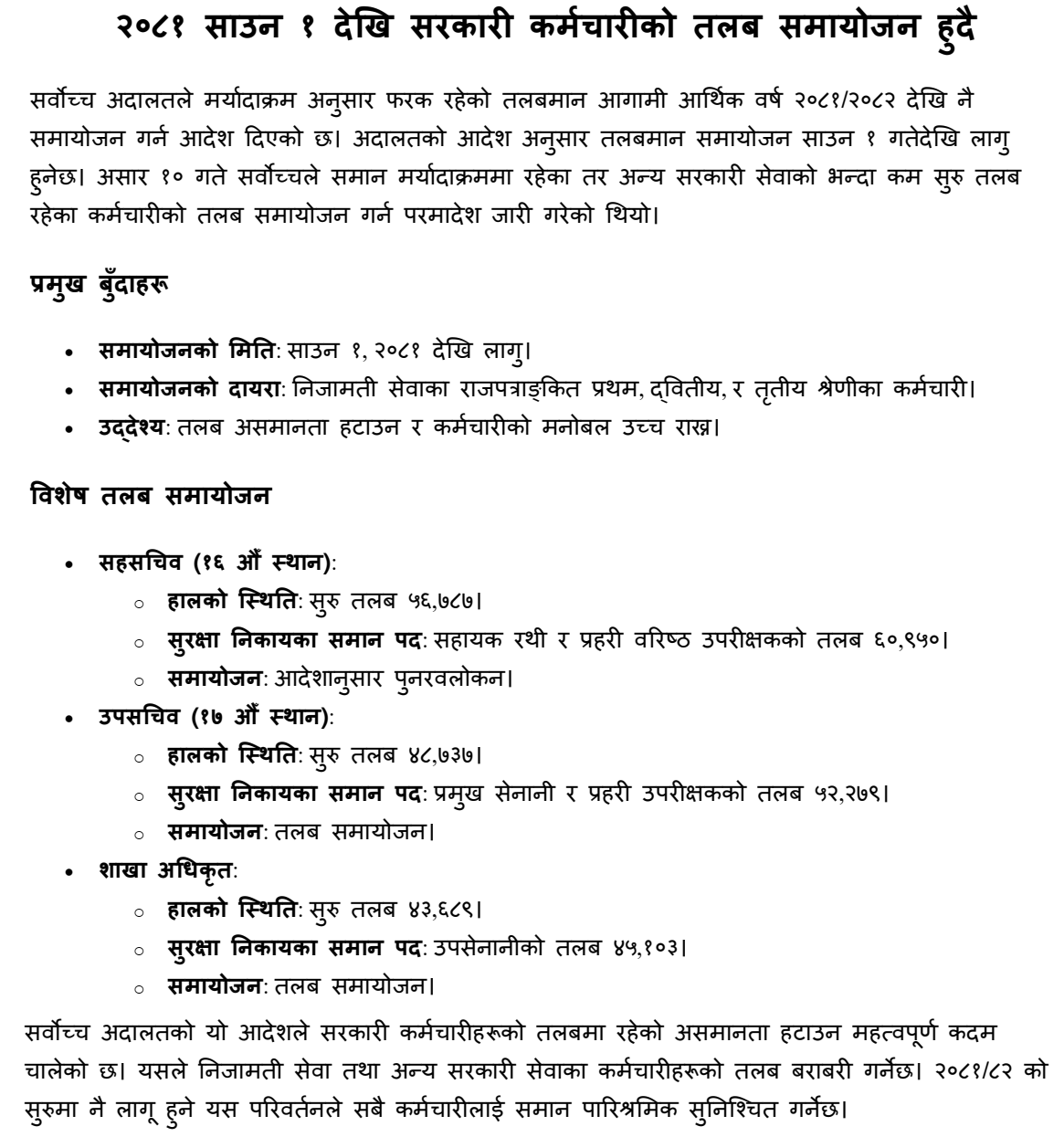
Nepal Government Employees Salary Scale Adjustment Effective from 2081 Shrawan 1
The Supreme Court has mandated a salary adjustment for Nepal government employees, starting from the fiscal year 2081/2082. This change aims to align the salaries of employees in similar ranks across different government services, effective from Shrawan 1, 2081. This adjustment follows a Supreme Court writ issued on Ashad 10, 2081, addressing discrepancies where employees of the same rank had lower starting salaries compared to other government services.
Key Points of the Salary Adjustment
- Effective Date: The new salary scale will be implemented from Shrawan 1, 2081.
- Scope: The adjustment targets civil service employees in the first, second, and third Gazetted ranks.
- Objective: To eliminate salary disparities and boost employee morale.
Specific Salary Adjustments
-
Joint Secretaries (Saha Sachiv) and Equivalent Positions:
- Current Status: Joint secretaries are ranked 16th with a starting salary of 56,787. In contrast, security officials like Brigadier Generals (Sahayak Rathi) and Senior Superintendents of Police (SSP - Prahari Baristha Uparikshak), ranked 17th, earn 60,950.
- Adjustment: Salaries will be reviewed to ensure equity across these positions.
-
Under-Secretaries (Upa Sachiv) and Equivalent Positions:
- Current Status: Under-secretaries have a starting salary of 48,737, while equivalent ranks in security agencies, such as Lieutenant Colonels (Pramukh Senani) and Superintendents of Police (SP), earn 52,279.
- Adjustment: Starting salaries will be adjusted to match those in security agencies.
-
Section Officers (Sakha Adhikrit) and Equivalent Positions:
- Current Status: Section officers earn a starting salary of 43,689, compared to 45,103 for Lieutenants (Upa Senani) in security services.
- Adjustment: Salaries will be aligned to ensure fairness.
Purpose of the Adjustment
The Supreme Court's decision aims to address existing salary disparities that undermine employee morale and create uncertainty. By aligning the starting salaries of civil service employees with those of equivalent ranks in other government services, the adjustment seeks to promote equality and maintain a motivated workforce.
Conclusion
This salary adjustment is a significant step towards achieving fairness in the remuneration of government employees. By addressing the discrepancies, the Supreme Court aims to create a more equitable and motivated public service. The changes are set to take effect from the beginning of the fiscal year 2081/82, ensuring that all employees in equivalent ranks receive fair compensation.






